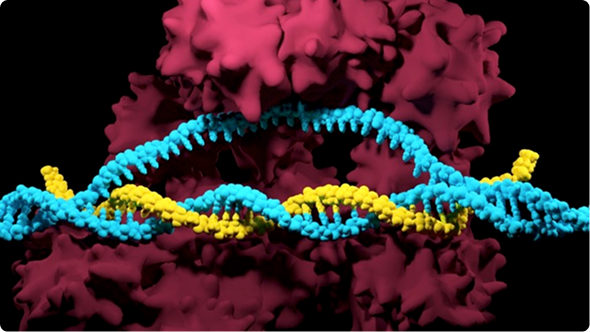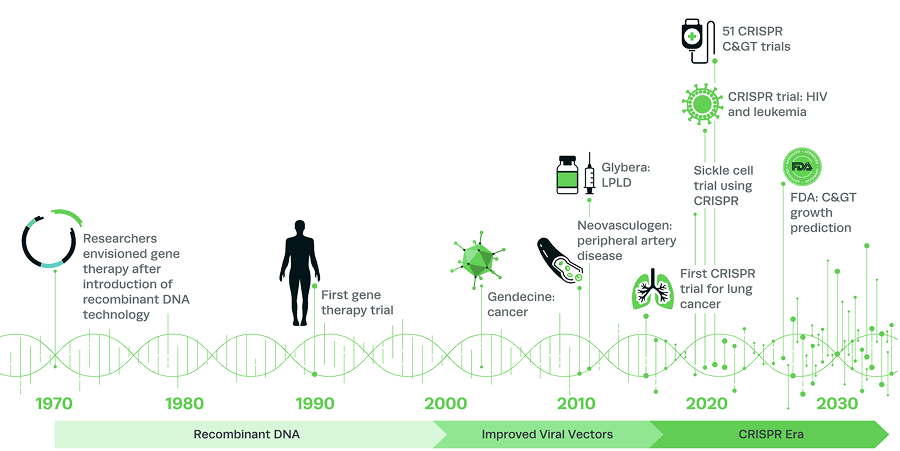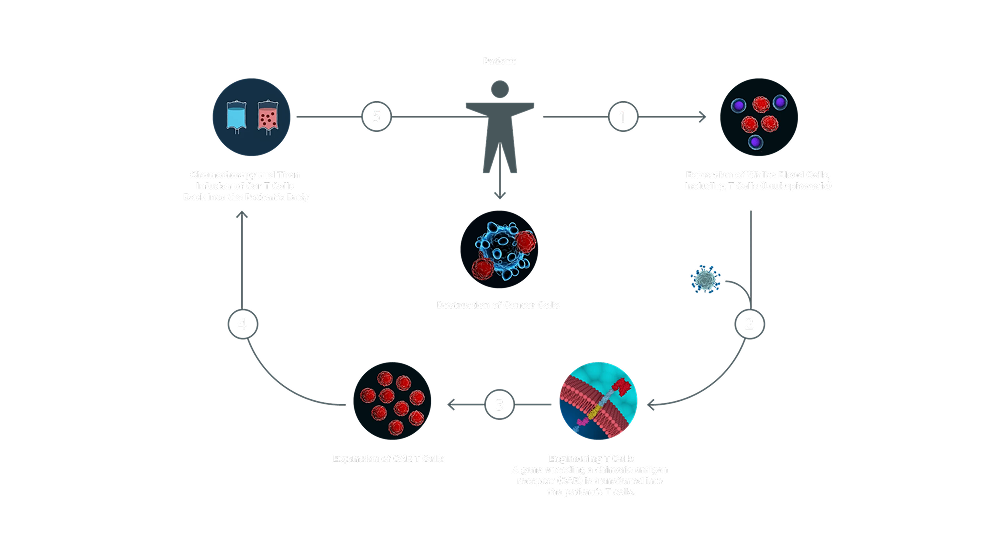CRISPR Base Editing (TEST)
A significant number of human genetic diseases are caused by single nucleotide variants, mutations that involve the alteration of a single DNA nucleotide.
Cancer affects millions of people worldwide, yet researchers have been working for decades to find effective treatments. New drugs, chemotherapy, and radiation techniques have been used over the years to treat patients, but none of these are devoid of side effects.
The discovery of CRISPR as a powerful gene editing tool ushers hope with its promising potential in cell and gene-based therapies, such as CAR-T therapy. Here we will discuss the basics of cancer and how CRISPR is transforming cancer medicine.

When the idea of gene therapy was first proposed, it seemed like science fiction - even to medical professionals and researchers. Let's explore the emergence of gene therapy, its promise, and early setbacks.
Cancer is a disease in which abnormal cells divide uncontrollably and, if malignant, can invade other tissues of the body. There are several types of cancer, commonly categorized by the affected tissue, including breast cancer, lung cancer, skin cancer, etc., or by the type of cell it originates from: carcinoma, lymphoma, leukemia, etc.
Sarcomas - cancers formed from bone or soft tissue (such as muscle and fat)
Leukemias - cancers that arise from tissue responsible for forming blood cells
Lymphomas - cancers that stem from a key cell type of the immune system i.e. lymphocytes (T cells or B cells)
Multiple myeloma - cancer that begins in plasma cells
Lorem ipsum dolor sit amet, consectetur adipiscing elit. Vivamus id nunc sed justo auctor pulvinar et eget nisi. Nunc vitae risus ex. Phasellus vitae tempor sem.
Fusce elementum enim sem, vel vulputate sem ultrices a. Suspendisse pharetra augue id ante auctor, id bibendum mi sollicitudin. Mauris gravida neque non mauris mollis, vel mattis erat tincidunt. Vivamus aliquam tincidunt turpis vitae vulputate

Lorem ipsum dolor sit amet, consectetur adipiscing elit. Vivamus id nunc sed justo auctor pulvinar et eget nisi. Nunc vitae risus ex. Phasellus vitae tempor sem.
Fusce elementum enim sem, vel vulputate sem ultrices a. Suspendisse pharetra augue id ante auctor, id bibendum mi sollicitudin. Mauris gravida neque non mauris mollis, vel mattis erat tincidunt. Vivamus aliquam tincidunt turpis vitae vulputate


We are at an exciting inflection point in the development and delivery of cell and gene therapies, and I see significant opportunities for Synthego to further establish our position as a leading provider of products and services to the many companies globally developing CRISPR-based therapeutics.
Synthego’s product allows us to quickly evaluate, in a cost-effective manner, the best guide RNA to stimulate genome editing, including by homologous recombination, in therapeutically relevant human stem cells and primary human T cells.
| Trial | Treatment name | Editing method/strategy | Company or clinician | Status |
|---|---|---|---|---|
| NCT03745287 | CTX001 (Casgevy) | Restored fetal hemoglobin by knocking out BCL11A transcription factor in autologous CD34+ HSPCs via CRISPR-Cas9 | Vertex Pharmaceuticals Inc. CRISPR Therapeutics | Complete, successful |
| NCT03872479 | EDIT-301 | Enhanced fetal hemoglobin expression via targeted editing | Editas Medicine | Ongoing Phase I/II |

In this interview, Senior Scientist Imran House and Junyun Lai from oNKo-innate shared their approach at developing cytokine and CAR-T therapies to combat cancer and how they pivot their career path from academics to the biotech industry.


Designing guides for your CRISPR experiments is crucial. Watch this webinar to learn how to use precise gene nomenclature and select the primary transcript for designing high-quality guides ...
Synthetic guide RNA offers a new approach to CRISPR editing that boasts superior editing efficiency, more consistent results, and faster overall workflow. To learn more about how synthetic gRNA compares...
Synthego's expertise and Paragon Genomics technology have been combined to develop a new method to evaluate novel nucleases that ...